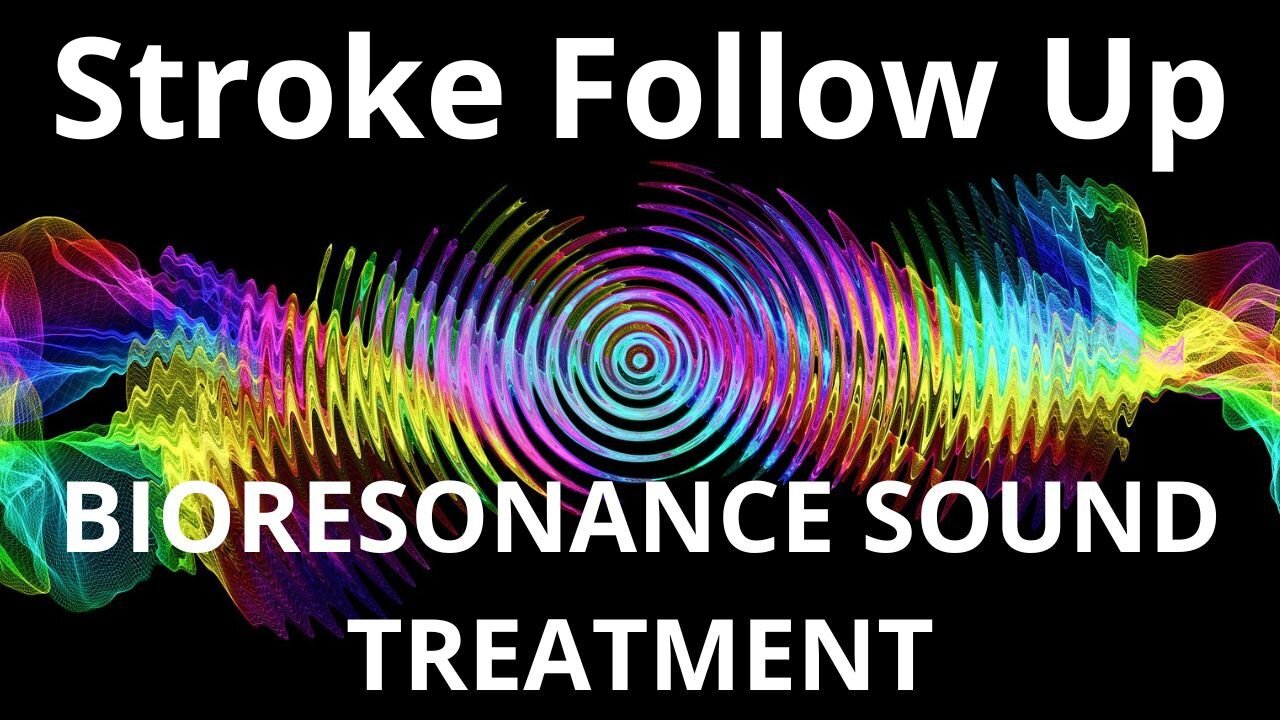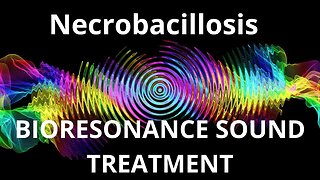Premium Only Content

Stroke Follow Up _ Sound therapy session _ Sounds of nature
#bioresonance#healing_energy#healing_frequencies
Stroke follow-up care involves ongoing treatment and rehabilitation to ensure that the individual is able to recover fully and prevent future strokes. In addition to conventional medicine, complementary therapies such as Resonant Frequency Sound Therapy can be used to enhance the effects of traditional treatments.
Resonant Frequency Sound Therapy is a non-invasive therapy that involves using sound frequencies to promote healing and restore balance in the body. In the case of stroke, the therapy can be used to improve circulation in the brain, reduce stress levels, and promote relaxation. By doing so, the therapy can enhance the effects of other treatments, promote faster healing, and prevent future strokes.
One of the benefits of using Resonant Frequency Sound Therapy for stroke follow-up care is that it can enhance physical rehabilitation. After a stroke, individuals often experience weakness or paralysis in certain parts of the body. Physical therapy can help to improve mobility and strength, but it can be challenging and frustrating for some individuals. Resonant Frequency Sound Therapy can be used in combination with physical therapy to promote relaxation and reduce stress, which can make the process more comfortable and effective.
Another benefit of Resonant Frequency Sound Therapy for stroke follow-up care is that it can alleviate emotional symptoms such as anxiety and depression. Stroke survivors often face emotional challenges that can make it difficult to cope with their recovery. By promoting relaxation and reducing stress levels, the therapy can alleviate these symptoms and promote emotional wellbeing.
Furthermore, Resonant Frequency Sound Therapy can be helpful in improving sleep quality. Many stroke survivors experience sleep disturbances, which can exacerbate other symptoms and hinder recovery. Resonant Frequency Sound Therapy can promote relaxation and enhance the body's natural healing processes, resulting in better sleep quality and overall recovery.
It should be noted that Resonant Frequency Sound Therapy is not a substitute for conventional medicine or physical therapy, but rather an adjunctive treatment that can enhance their effects. However, when used in combination with traditional treatments, Resonant Frequency Sound Therapy can be a valuable tool for promoting recovery and preventing future strokes.
In conclusion, Resonant Frequency Sound Therapy can be a valuable adjunct "Stroke Follow Up" treatment that can enhance conventional treatments and promote faster recovery. By promoting relaxation, reducing stress, and improving sleep quality, the therapy can alleviate physical and emotional symptoms and promote overall wellbeing.
TO ACHIEVE A POSITIVE RESULT, DAILY LISTENING TO VIDEOS IS REQUIRED.
I wish you health and prosperity!
You can purchase unique medicines in my store:
https://store11998180.company.site/
You have the opportunity to support the channel:
https://destream.net/live/RadSiarAl/donate
-
 29:59
29:59
BIORESONANCE SOUND THERAPY
2 months agoNecrobacillosis _ Sound therapy session _ Sounds of nature
110 -
 2:56:28
2:56:28
IsaiahLCarter
15 hours ago $7.21 earnedThe Tri-State Commission, Election Weekend Edition || APOSTATE RADIO 033 (Guest: Adam B. Coleman)
34.5K5 -
 15:03
15:03
Demons Row
10 hours ago $12.72 earnedThings Real 1%ers Never Do! 💀🏍️
51.8K17 -
 35:27
35:27
megimu32
13 hours agoMEGI + PEPPY LIVE FROM DREAMHACK!
169K14 -
 1:03:23
1:03:23
Tactical Advisor
17 hours agoNew Gun Unboxing | Vault Room Live Stream 044
255K39 -
 19:12
19:12
Robbi On The Record
18 hours ago $22.22 earnedThe Loneliness Epidemic: AN INVESTIGATION
83.1K103 -
 14:45
14:45
Mrgunsngear
1 day ago $140.87 earnedFletcher Rifle Works Texas Flood 30 Caliber 3D Printed Titanium Suppressor Test & Review
143K34 -
 17:17
17:17
Lady Decade
1 day ago $11.74 earnedMortal Kombat Legacy Kollection is Causing Outrage
94.4K23 -
 35:51
35:51
Athlete & Artist Show
1 day ago $14.16 earnedIs Ryan Smith The Best Owner In The NHL?
101K17 -
 22:56
22:56
American Thought Leaders
2 days agoCharles Murray: I Thought Religion Was Irrelevant to Me. I Was Wrong.
82.6K61